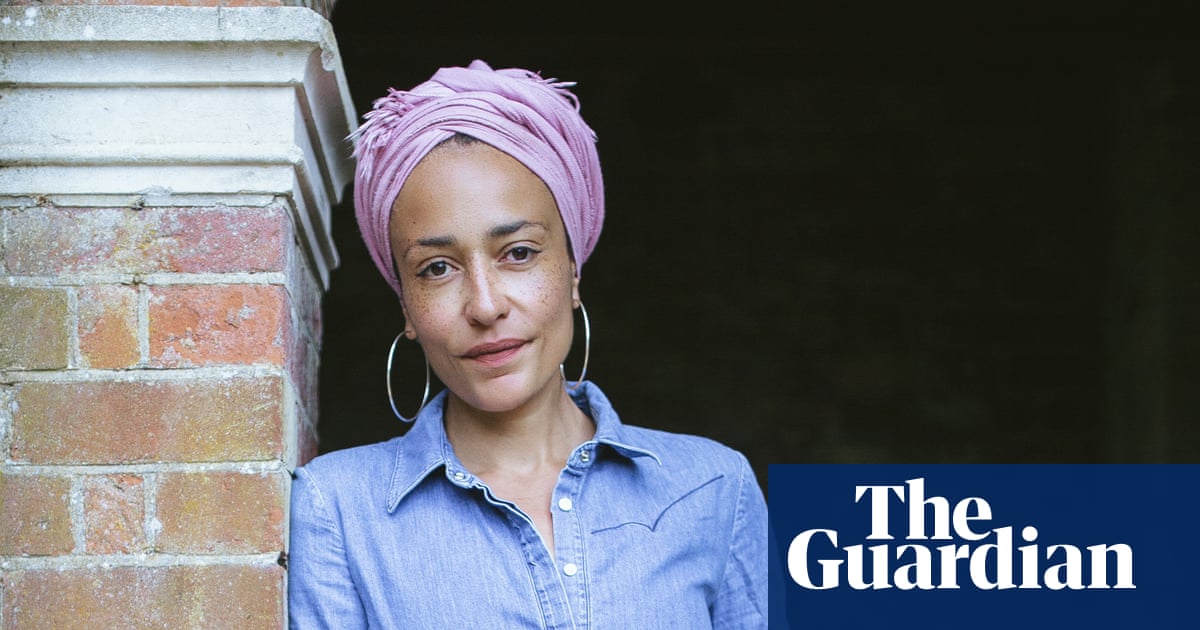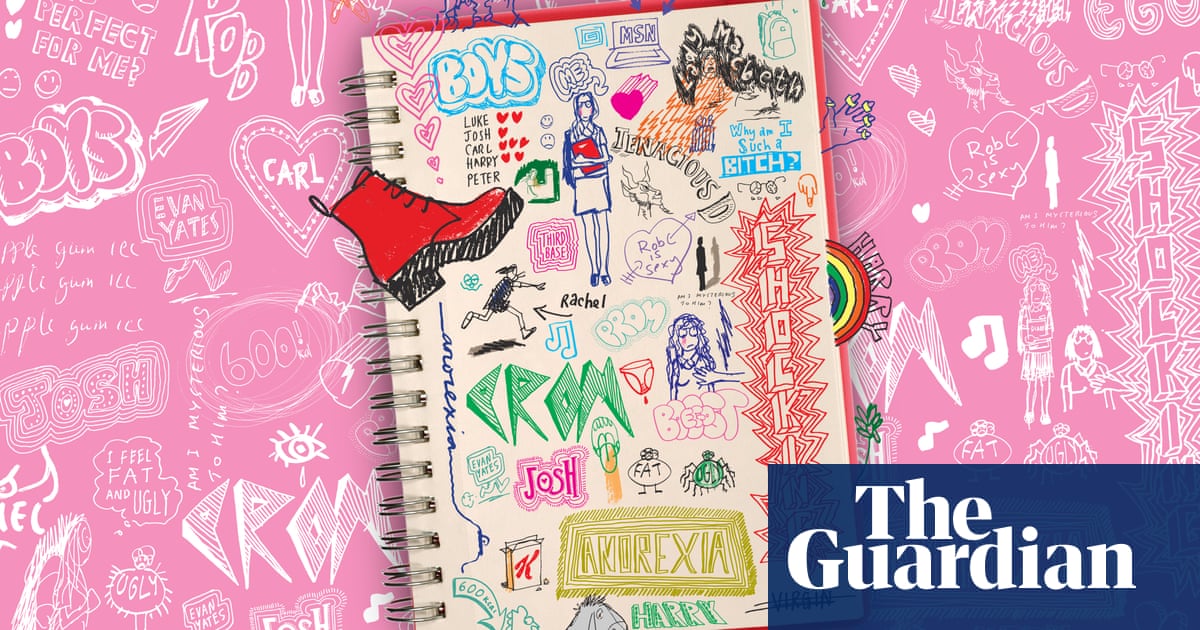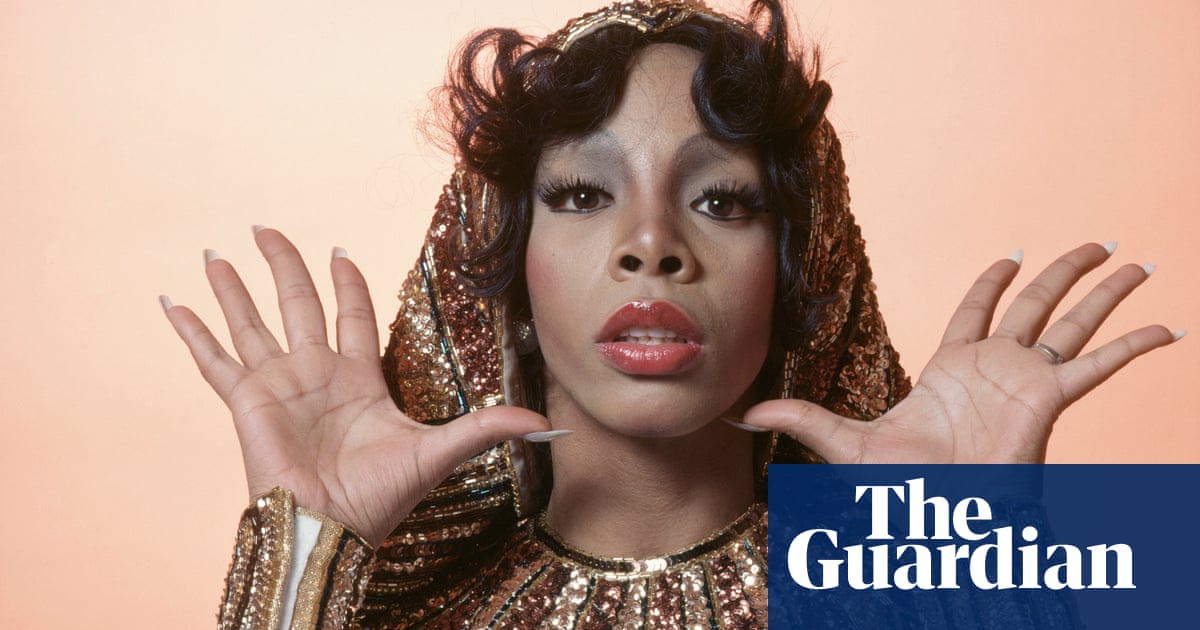
t’s not often that a mother follows her children into a family business but, with the publication of her debut novel, that is what Yvonne Bailey-Smith is about to do. Her daughter, Zadie, and sons Ben and Luc are all successful writers of various sorts. Her sitting-room bookshelves, in the area of London immortalised by Zadie Smith as NW, contain multiple copies of her daughter’s works, while the coffee table is piled with Ben Bailey Smith’s colourful picture books. Luc, who is mainly known for his rap lyrics under the name Luc Skyz, is upstairs beavering away on a screenplay.
Ben, who is also a rapper and actor, just happens to be launching his first children’s novel at the same time, so – barring a sudden return to lockdown – they will be making a joint appearance at the Edinburgh book festival, she says, happily. Her own novel is called The Day I Fell Off My Island and, without being purely autobiographical, it gives some idea of how it all began. It’s the story of a young girl of a similar age to herself who travelled to England at the age of 14 – as she did – to be reunited with her mother and younger siblings, after spending her early childhood in Jamaica, being brought up by her grandparents.
It’s a story familiar to many Caribbean migrants of her generation, which is precisely why she wanted to address it. “Children often had to be left with grandparents while parents migrated, and they sometimes found it very difficult to rebuild that relationship with their parents, as I certainly did,” she says. “Because of this history, when you hear about Caribbean grandparents, they’re always nearly always perfect, and of course, in reality, they’re not all perfect, so I also wanted to play with that idea.”
The richest, and most unusual, feature of the novel, is that the dialogue of the first half, before Erna is bundled off to “Hingland”, is written in Jamaican patois which – Bailey-Smith points out – is not pidgin but a language in its own right, with roots in English, Spanish and African languages. It’s a bold stylistic decision, which draws you into a different way of life – one that is bright and vivacious, but also God-fearing and bound by a tight social etiquette. Grandma believes in tough love. “Wa mek yuh call de Lard’s name out in vain?” she demands, when Erna prays for a dress like her sister’s. “Duppy gwaan juk yuk or sinting?”
It was a decision that necessitated two years of practice, via regular telephone sessions with fellow Jamaican expatriates, one in the UK and one in Canada – though this assiduous homework didn’t prevent a last-minute panic when a professor from the University of the West Indies spotted some spelling mistakes. “It had already been typeset but we had to call it back, because it’s a proper language so it absolutely had to be right,” she says.
The first public inkling that Bailey-Smith was a writer came in 2019 with an extract from the novel in the landmark anthology New Daughters of Africa, among writing by 200 women of African descent. “I had no idea that this was a moment for black writers,” she says. “I just wrote my book. While I was writing I didn’t read anything, because I really wanted my own unique voice to come through. And that’s the honest truth.”
Though terrible things do happen in it, The Day I Fell Off My Island is a kind and forgiving novel – a little too forgiving in some respects, according to Zadie, when she was finally allowed to read the manuscript. “I was terrified of giving it to her, and she was terrified of reading it,” says Bailey-Smith. “When she thought something didn’t work, she’d just say: ‘That’s a little on the nose. I think you need to do some more work on it.’” The book is threaded through with social issues that its author has encountered in more than 40 years as a social worker and psychotherapist: mental illness, domestic violence and, of course, the corrosive results of racism, but she was determined not to make Erna a helpless victim.
Her own London schooldays were a lot easier than Erna’s she says, “though, whilst I suffered no racism that I am able to recall at the hands of my peers and also found my teachers very amenable, I did find the careers mistress to be less than enthusiastic.” University was never suggested as a possibility. “Was that racism? I don’t honestly know. I think it was more that she had no understanding of the capabilities of a teen who hadn’t that long arrived from the Caribbean, which was weird to me, because, apart from maths and geography, I was way ahead of my English peers. And of course, the narratives about Caribbean kids and education in 1970s England were awful, particularly for boys, who were being sent off to so-named ESN [educationally sub-normal] schools in huge numbers.”
It wasn’t something she could discuss with her mother, who worked “as a sort of nursing orderly” in a hospital, while her father toiled away in a car factory. “Mum has never really talked about the impact of racism on her and now, at 90 years old, she doesn’t say much about anything. She just worked really hard to pay for the rather large house that she had purchased to house her children. I feel very much that I stand on her shoulders.”
On leaving school Bailey-Smith embarked on the life of a perpetual student, fitting a string of qualifications around marriage and motherhood at the age of 21, while doing youth work with kids who were barely younger than her. “I was surprised how cross some of these young black people were,” she says, “so way back then, I became very interested in how young migrant children were experiencing their lives in the new country.” Writing about it was always in the back of her mind, but, until resigning from her full-time job in the NHS three years ago, she didn’t have time.
It would be hard to think of a higher-achieving family, one more finely knitted into the social and cultural fabric of the UK, yet the breaking of the Windrush scandal in 2017 triggered a deep distress at all the petty injustices she had suffered along the way. “Yes, it was very triggering for me,” she says, “as it reminded me of the racism I and others faced on an almost daily basis on the streets of London and that awful feeling that one did not belong.”
Shockingly, when she retired from the NHS and was offered a part-time role as psychotherapist in a mother and baby unit, she found herself having to prove that she had the right to live and work in the UK. “The gap between me leaving my full-time role and taking up the part-time one was a single month, and I had to produce all kinds of documents to prove my eligibility to work,” she sighs.
The indignity was compounded when she arrived at a hospital A&E, with a suspected broken thumb, to find she had to wait while the administrators checked that she had a right to treatment. “Of course I knew that they were only implementing government policy but, given that pretty much all my adult life I have legitimately worked within social services and the NHS, I felt personally very hurt and very discriminated against.”
At heart, though, she is a creative optimist, who sings in a reggae choir, fills her garden with bougainvillaea-bright azaleas, and commands the streets of London on her bicycle. She was never going to allow Erna to be dragged down by the injustices around her. “I didn’t want her to be a victim,” she says, firmly. She slightly regrets not giving her character a proper love affair, but concludes that she will just have to wait for the sequel.












